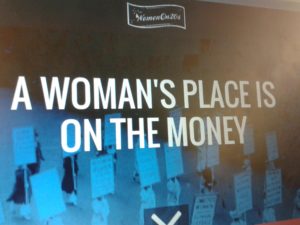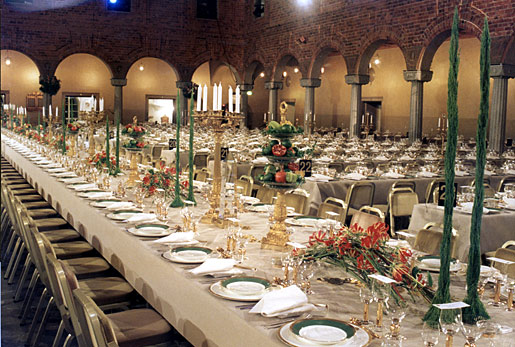WEST LONG BRANCH, NJ–Do you have any plans for the centennial of the 19th Amendment, the Constitutional revision that finally gave women the right to vote in 1920? The big anniversary is still five years away in 2020, but the Women on 20s organization already knows what it wants to be doing when it arrives—and it plans to make the year just as historic as 1920.
More specifically, Women on 20s recently set in motion a viral campaign to remove former president and controversial Indian Removal Act supporter Andrew Jackson from the $20 bill and replace him with a woman who had a hand in positively influencing the history of the United States.
“We believe this simple, symbolic and long-overdue change could be an important stepping stone for other initiatives promoting gender equality,” reads the homepage of the Women on 20s campaign’s website. “Our money does say something about us, about what we value. So together let’s make our money egalitarian, inclusive and an affirmation of American values!”
The process of this noble initiative involves several rounds of online voting, during which any Internet user can sign up to choose from a number of different historically significant women. Some of the dozens of women who were included in the first round, for example, were Margaret Sanger, Susan B. Anthony, and Elizabeth Cady Stanton.

Earlier this month, Women on 20s announced the four candidates that made it to the final round of voting, including Eleanor Roosevelt, Harriet Tubman, Rosa Parks, and Wilma Mankiller. Once the polls for these final four close on May 10, 2015, the people’s woman of choice will be presented by Women on 20s to President Obama, who has already acknowledged the campaign in a speech.
Monmouth junior Alison Goerke, whose Communication curriculum presents her with the opportunity to study gender equality with classes like Gender, Race, and Media, is a firm supporter of Women on 20s’ initiative.
“I think that the campaign is an amazing idea,” said Goerke. “If his worked out, it would be such a huge improvement on the representation of women in our society as a whole. The women considered for this campaign are such prominent figures in our history and have had a huge impact on our country today. As a woman, it would be really inspiring to see.”
Goerke is not the only person to feel this way. The Women on 20s campaign ballots up to this point have received hundreds of thousands of like-minded voters, and welcomed a substantial amount of donors, sponsors, and volunteers, including Oscar-winning actress Susan Sarandon.
However, the campaign has not managed to rally every individual behind its cause.
A female Monmouth senior minoring in Gender Studies who wished to remain anonymous is just one opponent of the campaign. She continues to question the merit of having a female figure on American paper currency, especially when she sees friends sharing links to the Women on 20s voting ballots on Facebook.
“I’m sorry, but printing a woman’s face on a piece of cash is not paving the way to gender equality,” said the senior student. “It’s a meaningless symbol that makes no real difference. I honestly just think that the Women on 20s organization could have spent its time and effort on something more significant, like addressing the wage gap.”
With the amount of traction that the campaign has been gaining, only time will tell whether or not opponents like this will be forced to pay attention and a $20 bill graced with a woman when they are checking out at the register in 2020.
To cast your vote for one of the final four candidates, visit the Women on 20s website!
https://www.youtube.com/watch?v=qu0l768x63E




